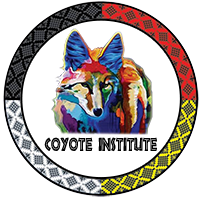New York Open Center22 E. 30th StreetNew York, NY, 10018United States (map)
A workshop by Lewis Mehl-Madrona and Barbara Mainguy at the New York Open Center, January 30-31, 2021, 10 am to 1 pm and 3 pm to 6 pm, Saturday and Sunday.
During this workshop we will explore indigenous approaches to improving social and emotional wellbeing, including how these relate to mainstream psychological and psychiatric approaches.
On Saturday morning, we will explore Eduardo Duran’s concept of the soul wound and how this originates from trauma – historical, intergenerational, and personal. We will look at his approaches to how we heal this wound together, through ceremony, through community, and through dialogue with the spirit of the illness that afflicts us. In the indigenous perspective illnesses can teach us important lessons that we can learn on our journey to becoming healthier. We will do an exercise for dialogue with an illness.
In the afternoon, we will explore what makes two-eyed seeing possible, first among these, the art of listening without judgment or interpretation, and second, the art of observing without presupposing what should or will happen. We will further explore the origins of the Two-Eyed Seeing concept born at Cape Breton University in Sydney, Nova Scotia and originated by M’iqmaq elders, Albert and Murdena Marshall. We will take instruction from the example of Wiremu Nia Nia, Allister Bush, and David Epston, who write about these types of collaborations from the standpoint of both indigenous and mainstream cultures. Through their perspective, we will explore working with voices and voice hearing from indigenous points of view. We will demonstrate dialogue with a voice.
On Sunday morning we will look at the Method of Levels and Narrative Therapies for working toward indigenous health and wellbeing. The Method of Levels was developed by Dr. Tim Carey and enables us to find the level of discourse at which values are in conflict and can be negotiated within the person. It is an alternative to motivational interviewing in that it takes the process further into the person though continuing the non-judgmental stance and assisting their finding their own valuations that lead to decisions about ongoing behavior. We will look at the use of stories and storytelling and how everything becomes a story and stories negotiate our relationships of meaning and purpose with the world. We will demonstrate these techniques.
On Sunday afternoon, we will finish with a discussion of forgiveness. Who forgives whom and under what circumstances? How do the various Truth and Reconciliation actions involving indigenous people in several countries relate to the concept of forgiveness? We will look at the biology of forgiveness and differentiate forgiveness from forgetting. We will conclude with a Toltec forgiveness circle that we will do virtually (which is the first time this has happened in our awareness). We will wrap up with feedback and dialogue.
All sessions will be recorded and available for watching for several months after the completion of the workshop. We will also have a google classroom with lots of resources (videos, articles, links) and opportunities for people to communicate with each other during and after the workshop ends. People will be welcomed into the Google Classroom upon registration so that our conversation can begin before the workshop and the resources can be accessed in advance. The more we know before the workshop, the further we can go during the workshop. People are welcome at all levels of knowledge, for learning is circular and we can all learn from each other.
While this is a virtual course, we do invite any attendees living in Maine to contact us about being present face-to-face in a socially distanced environment. We will be looking for several volunteers for demonstrations and having a few people together in the same space would make this easier.
